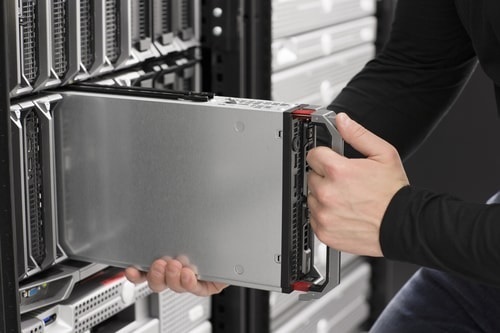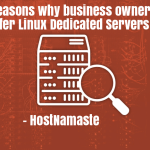
Hybrid Servers vs Dedicated Servers – Which Is Right for Your Business?
A lot of my readers have been bombarding me with questions regarding Hybrid and Dedicated Servers. Where these two servers are concerned, a lot of people end up getting perplexed. There’s nothing to worry about though; it happens to the best of us.
An innovation was adopted some time ago and people have been more confused than ever with all the hype surrounding hybrid servers. After the virtualization technology was introduced, the majority of hosting companies all across the world started offering hybrid servers in order to keep up with the latest advancements in the hosting industry.
This has opened doors for puzzlement and uncertainty between hybrid and dedicated servers. Thus for that reason alone, I decided to write in thorough detail explaining everything you need to know about hybrid servers, dedicated servers, and the difference between the two.
What are Dedicated Servers?
A dedicated server is a remote web server which a client acquires on lease and it isn’t shared with any other user. The client alone receives absolute access to the entire server, the hardware and also gets to choose the OS as well. A dedicated server offers more flexibility than shared hosting services and it’s more reliable in terms of performance, speed, safety, uptime, memory, and storage.
The servers are located on the Web Hosting provider’s grounds, although the user still gets exclusive access to a remote internet connection, as well as the security measures included with the web server.
What are Hybrid Servers?
As technology has been constantly evolving day by day, the hosting industry has also brought in several initiatives for organization-level clients. A hybrid server is not much diverse than a dedicated server. It’s a new kind of server which contains the functionality of dedicated servers and cloud computing on a large scale. It’s useful for advanced management of resources and databases, given to the fact that a hybrid server is fully capable of splitting into pieces to produce many more hybrid servers. Those servers are more advanced than standard servers.
Difference between Hybrid and Dedicated Servers
The real dilemma which most people face nowadays; what exactly is the difference between hybrid and dedicated server?
A dedicated server, on one hand, comprises of a single server which is dedicated to one client only. There is no involvement, by any means, of other users and the internet connection, as well as the web server, is allotted with no limitation to the client.
The only major difference between the two is that a hybrid server is a larger dedicated server that is further divided into multiple hybrid servers. Therefore, it is fully capable of managing extensive rather extensive resources when compared to basic shared hosting.
Both hybrid and dedicated servers are best suited for sites which derive excessive web traffic on them. However, hybrid servers are known widely for being the perfect preference for applications, databases, eCommerce platforms, and CMS sites.
Dedicated servers are much more preferred by hosting clients who need a secluded server atmosphere for their high traffic websites. Unlike hybrid servers, a dedicated server does not rely on any virtualization technology.
Pros of Dedicated Servers
1) Individual server for each client- When you have your own server, it can be optimized exclusively and can be flexible according to your company’s requirements. The user is allowed to gain 100% rights of storage, RAM, bandwidth, as well as the CPU.
2) Increased performance- If a website receives a high traffic load on a shared hosting plan, it’s bound to act lethargic. When you lease a remote server that is for your exclusive use only, the performance of your hosting automatically improves tenfold.
3) Custom IP address- With your own dedicated server, you no longer need to share an IP address with other users on the Shared server. Having a unique IP address could effectively rank your website higher on search engines and spare you from a bad reputation.
Pros of Hybrid Servers
1) Decreased costs- A dedicated server is a physical server which a customer takes on lease. So naturally, they are more costly than hybrid servers. You can purchase even stronger hybrid servers than dedicated ones at astonishingly lower rates and spend the money on more pressing matters.
2) Amplified performance and flexibility- No one would debate over the fact that a dedicated server bestows remarkable performance than shared servers. However, hybrid servers are known to deliver even better functionality and flexibility, in spite of using a virtualization technique.
3) Initiates expansion and growth- A hybrid server distributes into many more hybrid servers and these chunks are very the reason for enhanced performance and stability. Hybrid servers offer an expansion of your business by granting advanced storage facilities, security measures, and top-notch uptime.
Hybrid VS Dedicated Servers- Which is the Strongest?
After going through the basic distinction between the functionalities of hybrid and dedicated servers, we can safely affirm there isn’t much dissimilarity between the two other than just a few quirks. Yet, when we’re speaking in terms of performance, a hybrid server takes a dedicated one right out of the water.
A hybrid server is a unique mixture of a dedicated server and virtualization. Therefore, in addition to increased storage, CPU usage, bandwidth, speed, and uptime, you also get a remote server and utmost access to resources at a reduced cost.
In a nutshell, a hybrid server offers the same benefits as a dedicated server does. However, it does so at a lower rate and in a much more virtualized way; thus ensuring better outcomes.
Final Verdict
If you’ve stuck thus far, then I’m sure you’d agree with me here. Although dedicated servers are a pretty solid choice for hosting clients who need long-term services on their websites, hybrid servers broaden your scope more effectively.
Virtualized platforms are necessarily not strong enough to overpower physical servers. Still, it shouldn’t go unnoticed that the combined performance of a dedicated server and virtualization make up for an almost unbeatable hybrid server.
If one was comparing the powers of these two servers, it’s safe to assume that hybrid servers would win more points than a dedicated server.





Great Hybrid Servers article.
Thanks for the appreciation, Magual.
Really amazing post with much helpful information. Thank you very much for writing great stuff about Dedicated server hosting for us.
Thanks for the appreciation, Jerry.
Thanks for sharing such beautiful information with us.
Thanks for the appreciation.